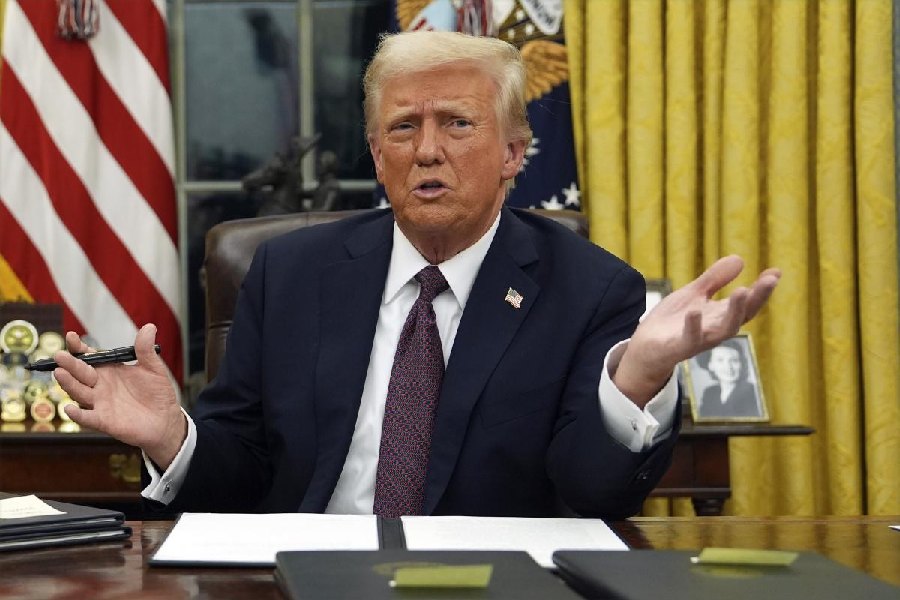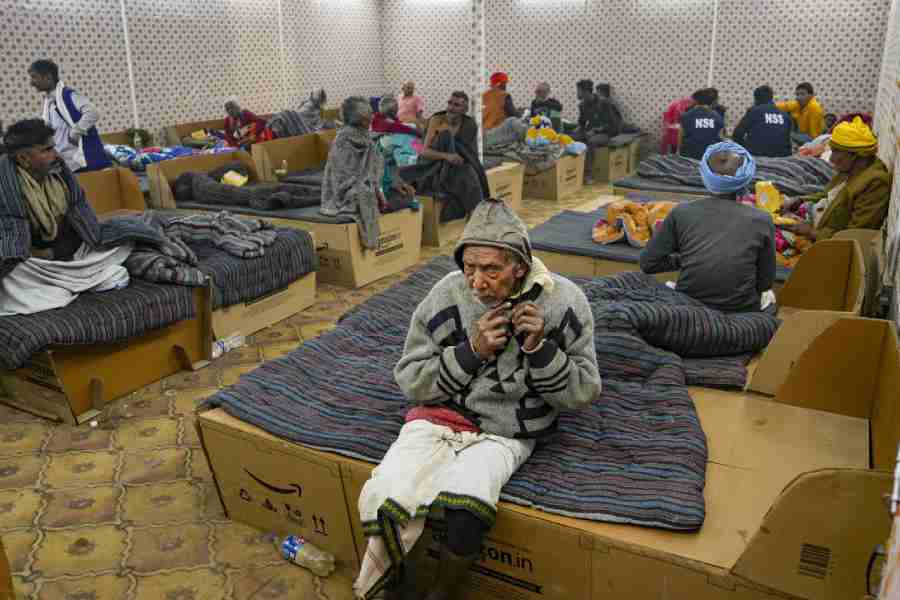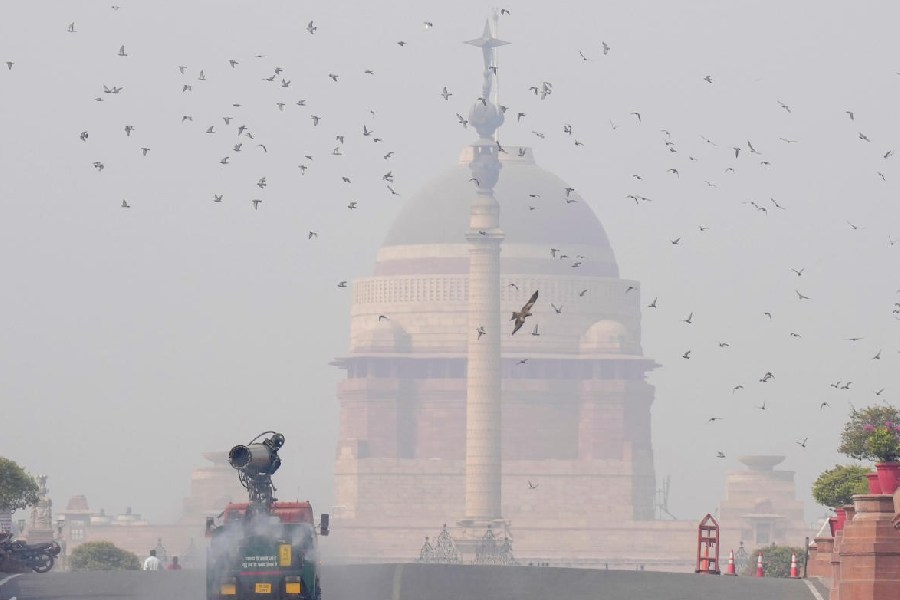The Covid rapid antigen test of a man with symptoms of the disease twice came back negative. On Sunday, his condition worsened to such an extent that he had to be admitted to the ICU of a private hospital.
Another elderly man with symptoms of Covid called up several testing facilities but no one agreed to collect samples from home.
Many Covid patients are becoming critical because they have to either wait for the RT-PCR test result for days or are undergoing the rapid antigen test that often throws up false negatives.
Testing centres, government as well as private, are allegedly not telling people that rapid antigen test results are not confirmatory. Reports of the rapid test often lead to a false sense of safety, which result in patients’ condition becoming critical. Metro finds out the problems and the reasons.
Treatment delay
A 53-year-old resident of Kasba has been having high fever for the past week. He had undergone the rapid antigen test twice at a clinic run by the Calcutta Municipal Corporation. On both occasions, he tested negative.
But he has been suffering from breathing distress and other Covid-19 symptoms. On Saturday night, the man's family took him to a private hospital and then to a government hospital, where he was refused admission.
On Sunday morning, he was admitted to the intensive care unit of another private hospital.
The guidelines issued for the rapid antigen test (RAT) mention that someone who tests negative but has symptoms of the disease should undergo the RT-PCR test, the gold standard of Covid diagnosis.
But the Kasba man was not told at the CMC clinic that he should undergo the RT-PCR test. The CMC is conducting the test at 16 clinics across the city.
Private diagnostic laboratories are not allowed to do the rapid antigen test, said an official of a private centre. “If a patient with Covid symptoms tests negative in the RAT and is not told to undergo the RT-PCR test, it will give a false sense of security in the patient that he is not infected with the coronavirus. That may result in the patient ignoring crucial signs that his condition is worsening,” said a doctor.
The Kasba resident suffered the same plight.
“After a lot of effort, he was admitted to a private hospital on Sunday. His oxygen saturation had dropped below 85,” said a family member.
Inadequate tests
The reasons why most CMC clinics are doing the RAT are the paucity of RT-PCR test kits and the fact that laboratories are overwhelmed with RT-PCR samples.
The CMC sends its samples to government laboratories, including the one at SSKM Hospital. “The lab at SSKM is overwhelmed. They get samples from other places, too. They are not being able to give the test results within 24 hours, which they did last year,” said a CMC official. The civic body, he said, collects about 800 RT-PCR samples every day.
“There is also a shortage of testing kits. Each of the 16 clinics collecting samples for the RT-PCR test is getting only about 60 kits a day,” said the official.
Some private hospitals, too, have complained about the paucity of kits. “The swab samples collected from a person are kept in the viral transport medium (VTM), a tube that has a solution. There is a crisis of VTMs. If VTMs are not abundantly available, tests will slow down,” said Sudipta Mitra, the chief executive of Peerless Hospital, which conducts over 500 RT-PCR tests in a day.
An official at AMRI Hospitals said they were asking people who were calling them up to enquire about the RT-PCR test to reach the hospital early. “If someone is coming towards noon, they may not get the chance to undergo the test on the same day. We are not able to do unlimited number of tests every day,” said an official of the group.
AMRI, which conducts about 700 RT-PCR tests at all its three units combined, is taking at least 48 hours to deliver the result.
Somnath Chatterjee, the director of Suraksha Laboratories, said they were collecting about 2,000 RT-PCR samples daily, compared with the 1,000 samples they used to collect every day at the peak of the first wave of infections last year.
“The numbers have doubled. Our staff members are overstretched. What is making matters worse is that some of the most experienced and efficient employees are down with Covid. We are still trying to deliver the results within 24 to 36 hours,” said Chatterjee.
Home collection
Several laboratories that were collecting samples from home last year, and even in February and March, are not doing so any longer. That is inconveniencing the elderly and the ailing, who are not in a position to visit diagnostic centres and stand in a queue to get their samples collected.
A 78-year-old man from Duttapukur, on the northern fringes of the city, has been trying for five days to get his swab samples collected for the RT-PCR test. He visited a clinic run by the local municipality but had to return without giving the samples because the queue was too long.
“We called several diagnostic centres but none agreed to collect samples from home. His doctor then started treatment without waiting for the test,” said a family member of the septuagenarian, who also suffers from chronic obstructive pulmonary disorder.
Suraksha’s Chatterjee said they were collecting samples from home but not always promptly. “If someone calls up today, we may not be able to collect samples the next day. So many of our employees tested positive for Covid. There are practical problems,” said Chatterjee.
Covid count
Bengal on Sunday recorded 19,441 new infections, 124 deaths and 18,454 recoveries. The number of active cases has risen to over 1.26 lakh.
Of the 124 deaths, 28 were reported from Calcutta and 34 from North 24-Parganas. While Calcutta recorded 3,966 new infections, North 24-Parganas reported 3,997.










